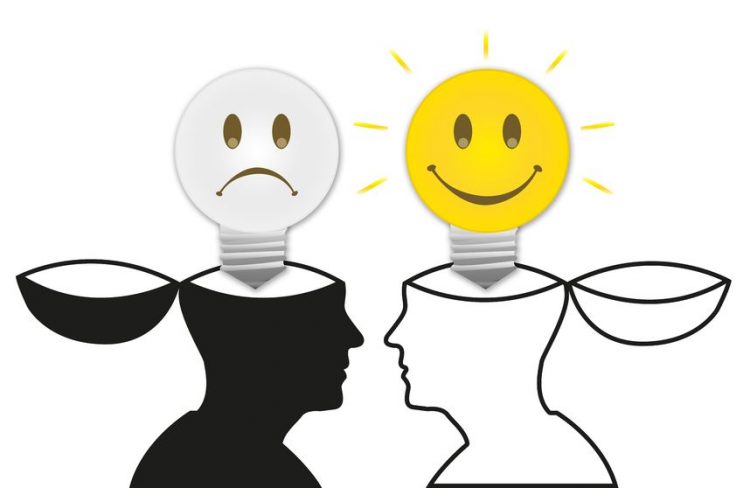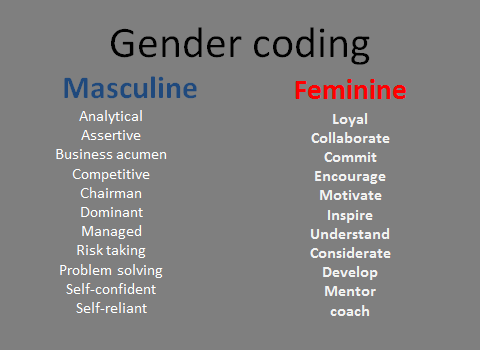As someone who is notoriously mind-less (I am the person who opens the refrigerator door and has forgotten why,) it has taken a lot of work for me to become attuned to my own biases. In that process I have become especially aware of the value of the process of mindfulness in recruitment. It was heartening to hear Katrien Goossens, Belgian based D & I professional recently advocate the same. Getting individuals to understand that bias isn’t only found in others, is not easy. We all have unconscious biases. It’s about all of us.
These biases are so deeply embedded in who we are, our values and belief systems that we barely notice they are there. Unconscious bias is there to protect us and to enable us to sort through the millions of thoughts that go through our heads every day and make sense of them. It is exactly the same as a Twitter hashtag system. A filing system to sort out the things that are important to us and effectively blocks out content that we don’t agree with, is dangerous, offensive or upsetting. In social anthropological terms life threatening people and situations.
Common workplace biases
The workplace is no different to our wider cultures. We all make decisions under pressure in the workplace and especially in the recruitment process. This is not efficient and at times illegal and especially frequently not rational. These biases relate to a number of assumptions around gender, age, race, disabilities, sexuality, appearance, BMI, height, social class, accent, nationality, schools and universities attended, political affiliation, postal codes or body art. The list is endless.
- Affinity bias – where we gravitate to people like ourselves and where we ignore negative traits of people we like (Halo Bias) and focus on the faults of those we don’t (Horn bias)
- Conformity bias – exhibiting preference for P.L.U. – People Like Us – our own social group who think like us
- Confirmation bias – where we justify our existing perceptions and interpret new evidence as confirmation of one’s existing beliefs or theories.
Even within the organisation, biases play an ongoing role in career advancement. Employees can be offered different levels of career opportunities based on any of these biases.
For many years, employers have used diversity training as a way to overcome biases and make their organisations less homogenous. Millions are spent. Increasingly those involved in bias awareness training report resistance and even hostility from their programmes and workshops. Harvard Business Review suggests that traditional strategies are not only ineffective, they can have a negative impact and even reduce diversity. Even pioneering companies like Google have barely moved the needle in terms of the composition of their workforce.
Some companies are trying to change procedures and practices to deal with these challenges and produce better results. These include:
- Blind CVs
- Skill based adverts and job descriptions
- Structured and behavioural interviews
- A bias facilitator at interviews
- Wider range and background of interviewers
- Interview by text (saw that this week)
My own unconscious bias
However, unwittingly we can continue to disadvantage others, even when at a conscious level we reject those biases. These biases interfere with our rational decision-making, which impact our organisations. It was never more apparent than when I was recently trying to arrange to interview candidates on a Wednesday afternoon. In Belgium the schools are closed. One male candidate was unable to meet because he had to pick up his kids. Another female candidate also had the same commitment. I noted my own reactions to both.
In emoji terms one earned a smiley face 😊 and the other a frown.☹️
My immediate reaction was for the guy “too cute.” The daddy factor. For the woman “she could miss an opportunity. What a shame.” It was very fleeting, but there nevertheless. Using mindfulness in recruitment allowed me to catch and manage that one. I caught myself watching Conchita a few years ago at the Eurovision song contest and caught a definite bias then.
Read: Conchita – Overcoming unconscious Bias
But how many have I missed? How many do we all miss?
Creating awareness
The fact that we have these biases does not mean we need fixing. When I took the Harvard-designed IAT, or implicit association test I discovered I had gender bias.
A contact discovered that she associated sciences as a male activity, which as a school counsellor she needed to be very aware of.
Another described a man with natural ethnic hair as “sloppy.”
I heard a young HR woman reference an older male candidate as a “past his prime.” Whatever that is.
Our cultures are embedded in gender expectations. This really great video from Kristen Pressner Global Head Human Resources Diagnostics Division Roche covers this point perfectly. Here she acknowledged her own gender biases. It’s a game changer for HR, heavily populated with women and one of the most important HR videos in a long time.
Mindfulness in Recruitment
The practise of Mindfulness can help make us aware of our hidden assumptions. It is about being present, paying attention with intention and not judging. It helps us focus on the experience we are in at that moment in time and creating an awareness of our reactions and making the unconscious conscious.
Becoming aware of my underlying assumptions has allowed me to observe and monitor my reactions and then to change my response if required. This is supported by research from Social Psychological and Personality Science, which suggests that mindfulness can reduce implicit bias and the subsequent negative behaviors follows.
Do I succeed every time? No. Yesterday I was called out by a colleague for a slip. The most important thing is to be open and accepting of feedback. A senior recruiter became defensive with me when I suggested his language choice was sexist.
Manage not eliminate
Essentially you can’t take the bias out of recruitment until the people involved in the recruitment process become bias conscious. If we all started to note and to become aware of why and how we react to people and ultimately judge them, then we might start to see better results.
The process starts with self. It’s just about getting started.
If you are struggling with unconscious bias in recruitment, contact me.






